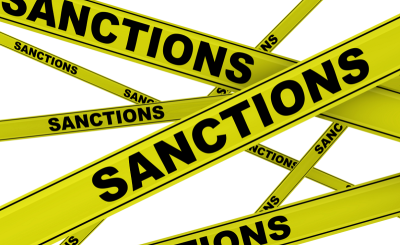West Remains Divided on Sanctions Against Russia

All Global Research articles can be read in 51 languages by activating the “Translate Website” drop down menu on the top banner of our home page (Desktop version).
To receive Global Research’s Daily Newsletter (selected articles), click here.
Visit and follow us on Instagram at @globalresearch_crg.
***
Russian President Vladimir Putin officially announced on February 21 Moscow’s recognition of the Lugansk People’s Republic (LPR) and the Donetsk People’s Republic (DPR). This was to the shock, annoyance and frustration of the Western bloc as the move once again divided their reactions and responses to the Ukraine crisis. For now, though, there has been no self-reflection as to why Putin was left with no other choice but to recognize the LPR and DPR.
Following Putin’s announcement, President of the European Commission Ursula von der Leyen and President of the European Council Charles Michel sent out near identical tweets claiming that the recognition of the LPR and DPR “is a blatant violation of international law, the territorial integrity of Ukraine and the Minsk agreement.” Both tweets added that “the EU and its partners will react with unity, firmness and with determination in solidarity with Ukraine.”
However, shortly after these tweets were made, the EU announced that it will not immediately impose sanctions on Russia as it would rather wait and see if there is any invasion. This was in stark contrast to a seething French President Emmanuel Macron, who immediately demanded targeted sanctions as he likely feels embarrassed and frustrated that Moscow’s recognition occurred a day after it was announced he had, in principle at least, secured a meeting between Putin and his American counterpart Joe Biden.
None-the-less, the current impasse regarding Ukraine and the recognition of the Donbas republics is a crisis that the EU never made a serious attempt of resolving. Not wanting a repeat of the Cyprus debacle which remains unresolved nearly half a century after Turkey’s invasion, Moscow was left with no choice but to recognize the republics to ensure security for civilians in the face of an ever-increasing Ukrainian military threat.
In fact, even the disjointed European response to Putin’s action once again demonstrates that the EU is not a serious institution in foreign policy matters. Although Macron was certainly furious, it is noted that he specifically called for “targeted” sanctions, whilst his Italian and German colleagues are already lobbing for potential sanctions to exempt the energy sector. This suggests that the EU will impose sanctions mostly out of “principle” (according to their Western liberal ideology) to show tokenistic support for Kiev, and not because they actually want to. If this is the case, it can be expected that any sanctions will be weak.
Washington, despite its never-ending rhetoric of an imminent Russian invasion, had a Biden administration official meekly say that the presence of Russian troops in Donestsk and Lugansk alone may not lead to the “swift and severe” sanctions that the White House has been warning about for months now. As much as it can be officially denied, US officials know that Ukrainian forces have refused to end their violence and extremism. It is recalled that an ethnic Greek was killed only last week by Ukrainian soldiers for speaking Russian – this is just one example of thousands of non-Ukrainians being persecuted, tortured or killed by Kiev’s racist forces.
The reluctance so far to apply sanctions has also brought forward a new debate in the West. POLITICO quoted a US official saying: “Russian troops moving into Donbas would not itself be a new step. Russia has had forces in the Donbas for the past eight years.” According to the outlet, the British government and foreign policy analysts (i.e. war hawks) view this idea with contempt.
In effect, even the US with all its bombastic and aggressive rhetoric against Russia is hesitant to apply sanctions in the current situation. This is the appropriate course of action since it was the West that failed to push and demand Ukrainian President Volodimyr Zelensky to implement the Minsk agreement to resolve the crisis in Donbas. Rather, the EU as an institution enabled Ukraine’s provocations despite calls from individual member states like Greece to include Russia in the European security architecture (correction to here) and resolve the Donbas crisis on the basis of the Minsk agreement.
Had the Minsk agreement been implemented by Ukraine, Zelensky would not be in a position where Lugansk and Donetsk have been permanently lost from Kiev’s authority. Instead, Zelensky opted to continue with the aggressive Ukrainization of all minority groups in the country (with European silence). This left Putin no choice but to recognize the republics to ensure the security of all Russian-speakers, which are of all ethnic backgrounds. If Putin had not made this step, non-Ukrainian minorities would continue to be targeted by Kiev’s racist military and paramilitary forces without recourse.
*
Note to readers: Please click the share buttons above or below. Follow us on Instagram, @globalresearch_crg. Forward this article to your email lists. Crosspost on your blog site, internet forums. etc.
Paul Antonopoulos is an independent geopolitical analyst.
Featured image is from OneWorld

